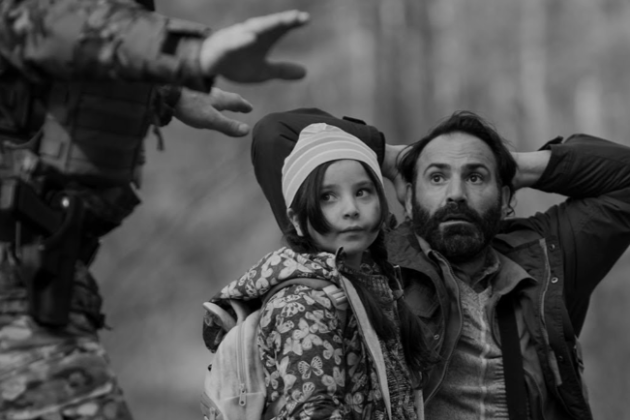Agnieszka Holland Calls Her Prize-Winning Refugee Drama ‘Green Border’ “Collective Psychotherapy” — Cannes Lions

Agnieszka Holland, who won the special jury prize at last year’s Venice Film Festival for her film Green Border about refugees on the Polish-Belarussian border, believes it serves as “collective psychotherapy” for those affected by the situation.
Speaking at the Cannes Lions Festival, the thrice Oscar-nominated director said she was “a storyteller” and hopes the film touched people’s hearts, but when asked if it could change the world, she replied: “I don’t think so.”
More from Deadline
Chrissy Teigen Says She Fears Donald Trump "Coming After" Her For Outspoken Remarks - Cannes Lions
'Green Border' & 'The Peasants' To Bookend Kinoteka Polish Film Festival In London
Holland said she feels destined to make films about the political situation on her nation’s doorstep and had been tackling difficult topics since she was a teenager in communist Poland, and later as a student in communist Czechoslovakia:
“I am also a person of border identity. My mother is from a Polish Catholic family, she was a member of the Polish army during the Second World War and a member of the Warsaw Uprising. As a teenager, she helped several Jews in hiding.
“My father was a Jew and practically all his family perished in the Holocaust. Growing up with all those paradoxes of history, I became sensitive to the danger of fear and hate which I think is imminent, involving crimes against humanity.
“Crimes against humanity were the subject of several of my films… Perhaps I am destined.”
Prior to Green Border, Holland won a Golden Globe and was Oscar-nominated for her wartime drama Europa Europa (1990) about a boy who escaped the Holocaust. Her later movies Angry Harvest, about state oppression, and In Darkness, also about the Holocaust, were also Oscar-nominated.
Following the Venice award for Green Border, The Guardian reported that the film provoked a backlash in Poland, with the government accusing Holland of attacking the nation. Polish justice minister Zbigniew Ziobro compared it to Nazi propaganda, while the country’s president Andrzej Duda used an old wartime slur about the gullibility of filmgoers, saying: “Only pigs sit in cinemas.”
Speaking at Cannes Lions, Holland referred to the government’s response to her film: “I was attacked violently by politicians and defended by the opposition. But I know that can change very easily. You have to try to take an overview, and not to fall into everyday fears.”
She referred to her observation of a duality at the heart of Europe:
“Europe has a double meaning. For us Poles in 1989 (the fall of the Berlin wall), it was the continent cradle of democracy, freedom, equality and human rights, and on the other hand, it is also the cradle for the most incredible crimes against human beings, which always start with the dehumanization of others. That duality is very strong, I want to speak about it. I feel maybe I am destined to talk about it. It takes a personal and professional risk… It’s not about personal satisfaction. It’s about asking the questions: who are we? And where are we going?”
Besides her film work, Holland has directed episodes of US TV, including The Wire and House of Cards. She is currently working on a biopic film about Franz Kafka.
Best of Deadline
Sign up for Deadline's Newsletter. For the latest news, follow us on Facebook, Twitter, and Instagram.

